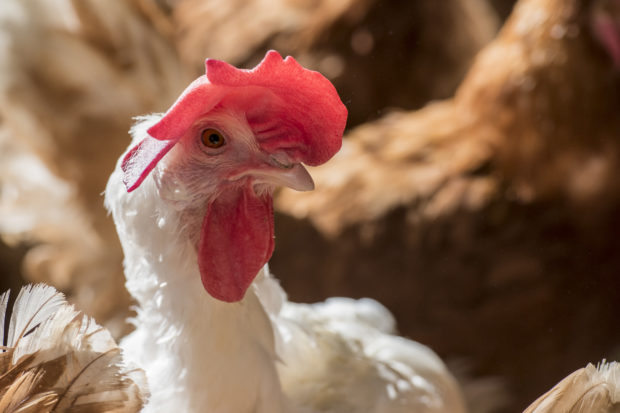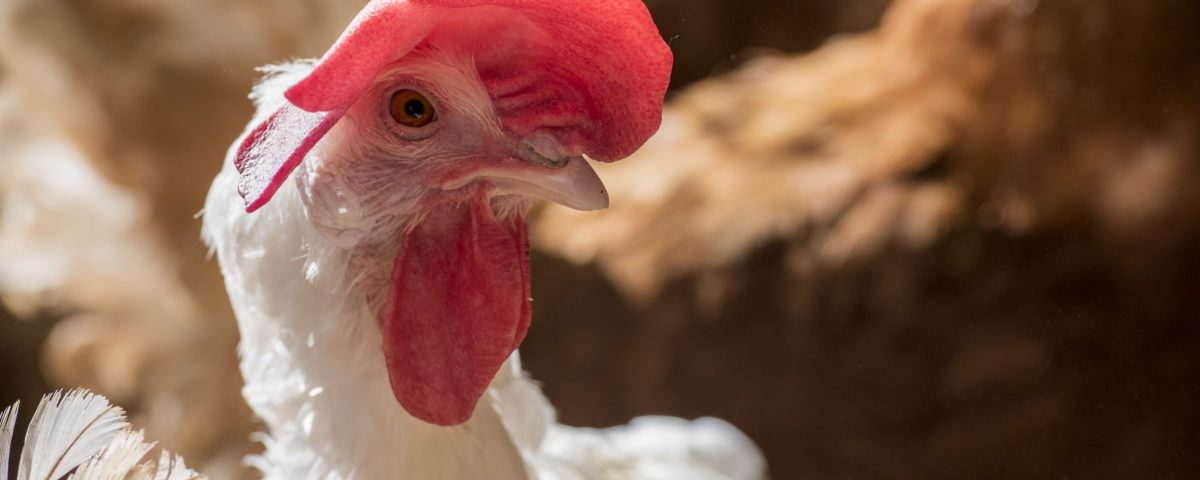Unilever – one of the world’s largest food conglomerates – announced that it has fulfilled its pledge to go exclusively cage-free for eggs in all Hellmann’s and Best Foods mayonnaise products, three years ahead of schedule. The acceleration of its previously-stated cage-free timeline – which translates into more than a million birds a year out of cages — is a hopeful indicator that Unilever will be one of many food companies that execute on their pledges well ahead of their original time frame. Within the last two years, more than 200 companies – the biggest names in food retail in the United States and abroad – have committed to go cage-free, and egg producers know that they must move dramatically toward more extensive systems if they want to sell eggs.

Within the last two years, more than 200 companies have committed to go cage-free, and egg producers know that they must move dramatically toward more extensive systems if they want to sell eggs. Photo by David Paul Morris/For The HSUS
We’re now also starting to see a series of major commitments from food companies to reform their supply chain when it comes to chickens raised for meat – so-called “broiler” birds. Currently, the vast majority of broilers live in something of a physiological cage — the result of being bred to grow so large so fast that billions suffer crippling leg deformities and are so severely bound by their body architecture that they are all but immobilized. They can barely move. Birds just a few weeks old suffer heart attacks. What’s more, they live in dark, barren warehouses and are slaughtered using cruel and archaic methods. USDA slaughter statistics indicate that broiler companies raised about nine billion birds a year – the largest sector of animal agriculture by far, if we just take into account the number of animals raised annually.
In recent weeks, Aramark, Chipotle, Compass Group, Panera Bread, Shake Shack, Starbucks, and others have committed to addressing the welfare of these birds. They’re requiring that their chicken suppliers over time follow standards set forth by the Global Animal Partnership regarding healthier breeds of birds and improved living environments, while also upgrading to a more modern slaughter method.
As we saw with our cage-free hen campaign, there will be plenty of industry pushback in the early stages of this effort. The National Chicken Council (NCC), for example, recently released a series of odd claims painting a rosy picture of poultry production, and denying the problems. “Express Markets, Inc.” and Elanco—both subsidiaries of the pharmaceutical giant Eli Lilly, the latter of which sells a tremendous amount of growth-promoting drugs to the agribusiness industry—produced an eight-page Powerpoint for the NCC that constituted its primary rebuttal to these major food companies’ announcements. For more details, see The HSUS’s full response to the NCC’s claims here.
The big institutional food buyers – reacting to the wishes of their customers, who demand that all animals deserve better treatment — are telling agribusiness they want to see production practices change. It’s won’t turn out well for agribusiness to thumb its nose at its customers and tell them they’re wrong and naive. Agriculture has always demonstrated an ability to change, and it’s pessimistic and ahistorical to think that the routine practices in the industry are the best they can do. The experiences of other industries has been instructive. Over many decades, veal sales plummeted as the industry refused to address concerns about animals being chained by their necks. The pork and egg industries pushed against moves to eliminate gestation crates and battery cages while voters and hundreds of their biggest customers told them that they wanted the era of extreme confinement to end. They’re now all adapting, but they did it the hard way, saying that change on such a scale was impossible. Until it was inevitable.
It’s not surprising we’re seeing this. The most important explanation is that consumers want to see all animals, in every sector of agriculture, humanely treated. So I invite the industry to join us in making the transition to a better future.
It’s also my hope that the nominee for agriculture secretary, Sonny Perdue, will help facilitate the transition to a more humane, more sustainable food supply. Gov. Perdue can come out of the gate in a strong way by asking Congress to pass legislation requiring humane slaughter for poultry, as a first step toward restoring public confidence in the broiler industry.
The post Unilever delivers on cage-free pledge three years ahead of schedule appeared first on A Humane Nation.
Enviroshop is maintained by dedicated NetSys Interactive Inc. owners & employees who generously contribute their time to maintenance & editing, web design, custom programming, & website hosting for Enviroshop.
